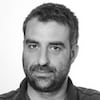Coronavirus cases will only have to isolate for seven days in Spain, as government seeks to adapt strategy to changing nature of pandemic
The decision was taken on Wednesday by the Health Ministry and the country’s regions, but did not have the blessing of an advisory board of experts who requested more time to examine the evidence backing such a move

The unstoppable wave of coronavirus infections caused by the omicron variant has forced the Spanish Health Ministry and the country’s regions to change course in their management of the pandemic. With nearly 600,000 infections reported in the last 10 days – a number that in reality will be higher – the sixth wave has left the current strategy of active tracing of cases, confirmation of cases in all patients via the healthcare system and the tracking of contacts obsolete. The system needs to be adapted to a virus whose spread is uncontrollable but which, in the majority of cases, is causing only mild or symptomatic illness thanks to vaccines.
“We need to find a balance between public health, mental health and the economy,” said the prime minister, Pedro Sánchez, who was speaking on Wednesday to offer an annual summary of his government’s track record.
In a series of changes that have seldom been seen during the pandemic, the Health Ministry and the regions agreed to hold an extraordinary meeting of the Public Health Commission on Wednesday, which unanimously decided to reduce the isolation period for positive cases from 10 to seven days, if the person in question has no symptoms by the seventh day. No PCR or antigen test will be required before that person can return to normal life. Spain is the first country in the European Union to adopt this measure.
The reduction of the isolation time will mean a considerable change in terms of the economy, and seeks to alleviate the impact on staffing levels of so many people being off sick with Covid-19. Unusually, this move does not have the blessing of the board of experts advising the government, which had requested that the authorities waited a week before making this change. “There is still no data to take [this decision], we need a bit more time and to analyze the evidence that is appearing,” sources from the board explained.
The Inter-Territorial Council of the National Health System (CISNS), which brings together the central Health Ministry and the regions, certified this change of strategy on Wednesday. “It’s very important to see the current moment as a change in the behavior of the virus that perhaps makes necessary a revision of the indicators and an evaluation of the new reality,” explained sources with knowledge of the content of the meeting.
The Council expressed its concern over the “high number of diagnostic tests” being carried out by the health system, which has overwhelmed the primary healthcare system and the microbiology services at hospitals, and has made it necessary to limit “tests to symptomatic patients.” The only good news conveyed by the Health Ministry and regional health chiefs at the meeting was the fact that there are less than half the hospital admissions that there were a year ago, despite a new record high of infections reported on Wednesday (100,760).
The need to adapt to the new dynamics of the virus started to become clear a week ago, when the Public Health Commission agreed to exempt from quarantine the vaccinated close contacts of positive cases. But all sources point to the fact that the change in the route map was accelerated on Tuesday morning, when the Centers for Disease Control and Prevention (CDC) in the United States recommended reducing isolation to five days.
“The worrying thing is that the CDC’s decision was not accompanied by data that justified this reduction to five days,” explains Elena Vanessa Martínez, the president of the Spanish Epidemiological Society (SEE). “The available evidence does not allow us to be sure that with seven days we are going to avoid the risk of many people finishing their isolation and still being contagious. This is why the experts from the board had asked for more time and it’s worrying that they have not been given it.”
Quique Bassat, an epidemiologist and researcher at the ISGlobal institute in Barcelona, believes that “seven days is much less risky than five, given that the data shows that the average time during which a person is contagious is five-and-a-half.” But, he adds, “what is needed is a negative test before leaving isolation, as was set in the United Kingdom, because the range of days could be longer and some patients could still be infecting others beyond the seventh day.” Spain, for now, is not asking for this.
“A new phase”
As for the changes adopted by the Health Ministry and the regions, Bassat considers them to be “a sign that we are entering a new phase of managing the pandemic, but it is very risky to do this all at once when there is such a large growth in cases; this implies that there will be more transmission that we could be avoiding.”
Daniel López-Acuña, a former director of emergencies at the World Health Organization (WHO), believes that the Public Health Commission’s decision is an intermediate step. “It’s the solution between those who want to reduce isolation to five days and the current rules of 10,” he explains. “The former position was premature and there was the risk that positive cases were not yet negative, thus causing new infections, something that will also occur if there is no certainty via a test or another diagnostic test to confirm that infected people are now negative.”
The opinion of hospital chiefs, as gathered by this newspaper, is in favor of the measure as a first step toward changing the system of epidemiological monitoring. “With the current levels of transmission and the mild nature of the majority of cases among the vaccinated, it would be better to make some general recommendations to citizens, monitor the epidemiological progress with surveillance centers, and focus efforts on the population with a greater risk of suffering serious cases,” argues Jesús Rodríguez Baño, the head of infectious diseases at the Virgen de la Macarena Hospital in Seville.
Tu suscripción se está usando en otro dispositivo
¿Quieres añadir otro usuario a tu suscripción?
Si continúas leyendo en este dispositivo, no se podrá leer en el otro.
FlechaTu suscripción se está usando en otro dispositivo y solo puedes acceder a EL PAÍS desde un dispositivo a la vez.
Si quieres compartir tu cuenta, cambia tu suscripción a la modalidad Premium, así podrás añadir otro usuario. Cada uno accederá con su propia cuenta de email, lo que os permitirá personalizar vuestra experiencia en EL PAÍS.
¿Tienes una suscripción de empresa? Accede aquí para contratar más cuentas.
En el caso de no saber quién está usando tu cuenta, te recomendamos cambiar tu contraseña aquí.
Si decides continuar compartiendo tu cuenta, este mensaje se mostrará en tu dispositivo y en el de la otra persona que está usando tu cuenta de forma indefinida, afectando a tu experiencia de lectura. Puedes consultar aquí los términos y condiciones de la suscripción digital.









































